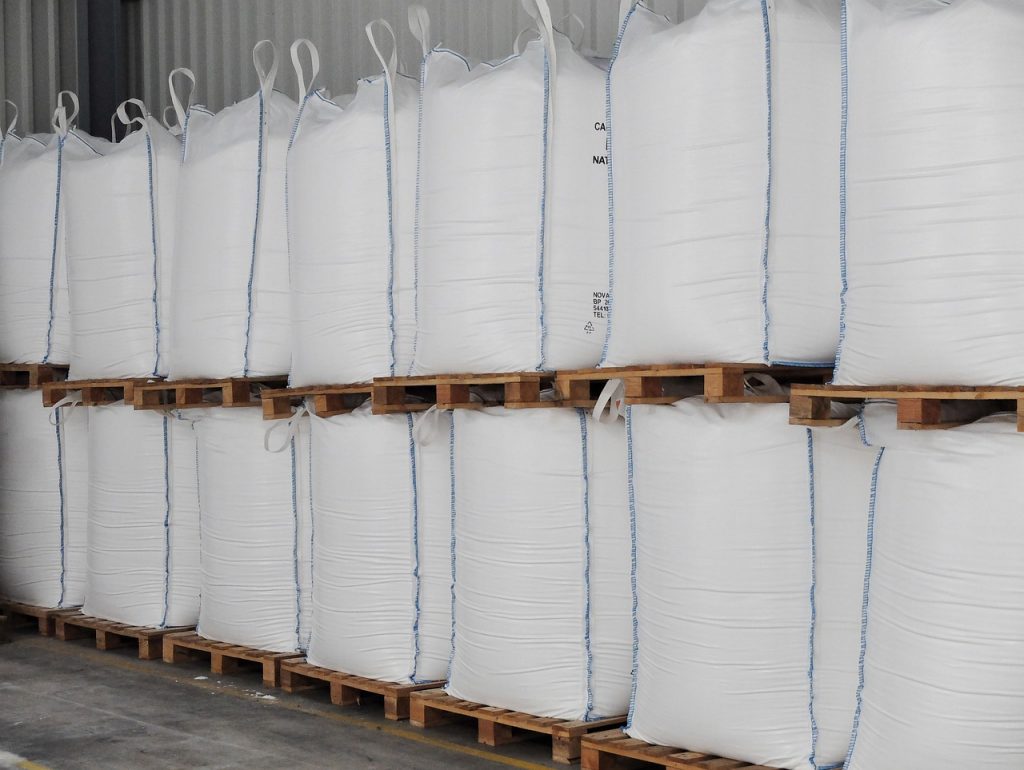Efficiency and cost reduction are key objectives for businesses across various industries. Companies constantly seek innovative solutions to streamline their operations and drive down expenses. One such solution is the use of bulk bags. These large, flexible containers provide numerous benefits that can significantly impact a company’s operational costs. In this article, we will explore FIBC bulk bags and how these bulk bags can help reduce expenses and enhance efficiency across different sectors.
What is an FIBC Bag?
An FIBC (Flexible Intermediate Bulk Container) bag, also known as a bulk bag, is a type of large, flexible container designed for the transportation and storage of bulk materials. These bags are commonly used in industries such as agriculture, construction, manufacturing, and logistics, where the handling and transportation of large quantities of goods are required.
FIBC bulk bags are typically made from woven polypropylene fabric, a strong and durable material that can withstand the rigors of transportation and storage. There are various sizes and types of FIBC bags, ranging from small bags with a capacity of a few hundred kilograms to large bags that can hold up to several tons of material.
Are FIBC bags recyclable are reusable?
Yes, FIBC bags are recyclable. These bags, also known as super sacks or bulk bags, are typically constructed using woven polypropylene threads. Since they are made primarily of plastic, they can be recycled into new plastic products following the manufacturer’s guidelines. Recycling FIBC bags helps to promote sustainability and reduce waste in line with environmental objectives.
FIBC bags are reusable as well. The safety factor (SF) of a bag is expressed as a ratio, usually, 5:1 or 6:1. A safety factor of 5:1 signifies that the bag can hold 5 times the amount of its safe working load and is designed for single use, while a safety factor of 6:1 indicates that the bag is intended for multiple uses.
The Benefits of Bulk Bags for Operational Cost Reduction
1. Increased Shipping Efficiency
The transportation of goods is a critical aspect of any business, and optimizing shipping processes can lead to substantial cost savings. Bulk bags offer several advantages in this regard. Unlike traditional packaging materials such as boxes or crates, bulk bags maximize the use of available space. Their flexible nature allows for efficient stacking, both vertically and horizontally, optimizing container and truck capacity.
For example, consider a logistics company that transports agricultural products. By utilizing bulk bags to transport grains or fertilizers, they can significantly increase the volume of goods per shipment, reducing the number of trips required and cutting down on fuel and transportation costs.
2. Minimized Packaging Expenses
Packaging materials can represent a significant portion of a company’s operational costs. Traditional packaging options often involve multiple components, such as boxes, tape, and padding, which can be expensive and time-consuming to assemble. In contrast, bulk bags provide a cost-effective alternative.
Bulk bags are designed to withstand rigorous handling and transportation. Their durable construction eliminates the need for additional packaging materials, reducing expenses associated with boxes, pallets, and protective materials. Moreover, bulk bags can be reused multiple times, further contributing to cost reduction and sustainability efforts.
3. Enhanced Warehouse Efficiency
Efficient utilization of warehouse space is crucial for businesses dealing with large volumes of products. Traditional packaging methods can be bulky and inefficient, leading to wasted space within storage facilities. Bulk bags offer a solution to this challenge by providing a more compact and stackable storage option.
With bulk bags, companies can maximize vertical storage capacity, allowing them to store a greater quantity of products in the same space. This increased storage efficiency not only reduces warehouse costs but also improves inventory management by facilitating better organization and easier accessibility.
4. Streamlined Production Processes
In manufacturing industries, operational costs can escalate due to inefficient production processes. Bulk bags can play a vital role in streamlining these processes, leading to cost savings and increased productivity.
For instance, in the pharmaceutical industry, bulk bags can be used to transport raw materials or ingredients to production lines. This eliminates the need for manual handling and reduces the risk of contamination. The use of bulk bags also simplifies the process of weighing and dispensing materials, improving accuracy and reducing labor costs.
5. Waste Reduction and Sustainability
Sustainable practices are increasingly important for businesses, both for environmental and cost-saving reasons. Bulk bags contribute to waste reduction efforts in several ways. Firstly, their reusable nature significantly reduces the amount of packaging waste generated compared to traditional one-time-use containers. This not only saves disposal costs but also aligns with the growing demand for eco-friendly solutions.
Furthermore, FIBC bulk bags are often made from recyclable materials, ensuring a closed-loop system that promotes resource conservation. By incorporating bulk bags into their operations, companies can demonstrate their commitment to sustainability while enjoying the financial benefits that come with it.
Conclusion
In today’s competitive business landscape, finding ways to reduce operational costs is vital for sustained success. FIBC bulk bags offer a versatile and cost-effective solution that can positively impact various aspects of a company’s operations. From enhancing shipping efficiency and minimizing packaging expenses to improving warehouse utilization and streamlining production processes, the benefits of bulk bags are numerous.



